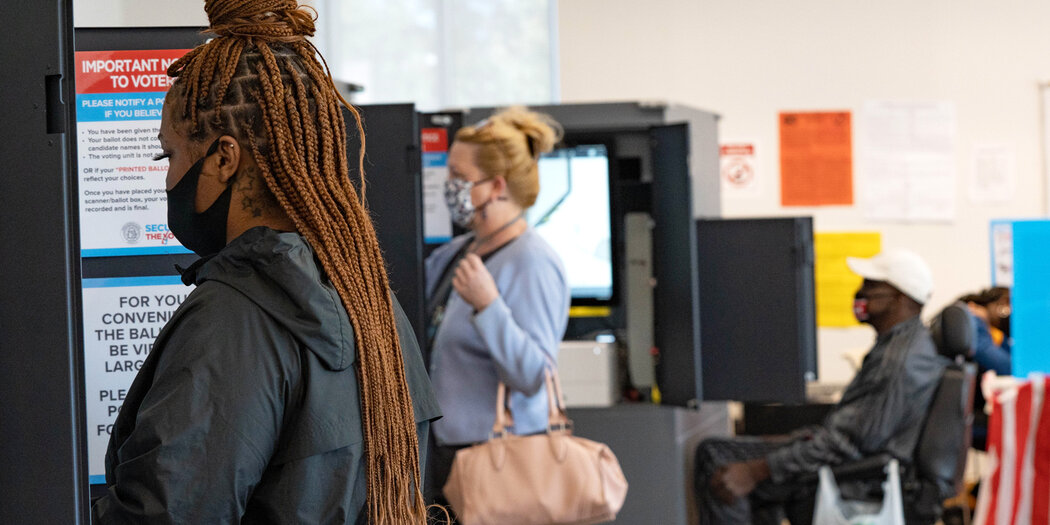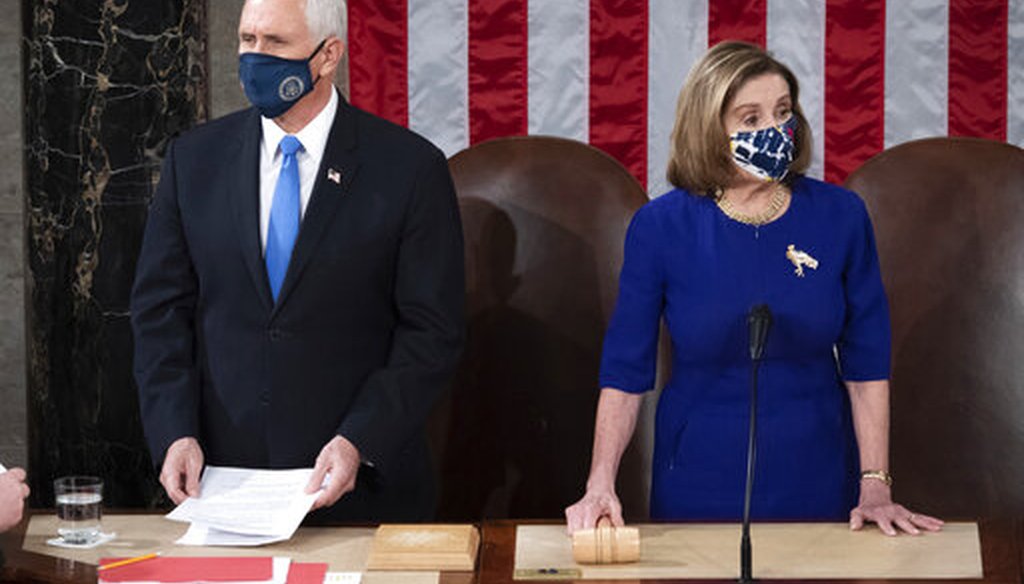WingsOfGold
Well-Known Member
Time to narrow it to 3, maybe 4.
So what. It's not illegal to help an elderly person fill out their ballot.
They’re even better at helping the metabolically challenged in our nations cemeteries.It should be though. The only people who think it's okay to "help" the demented and mentally ill cast votes is you cheating Democrats. If they are no longer competent to vote on their own, they're no longer competent to cast a legitimate vote.
They’re even better at helping the metabolically challenged in our nations cemeteries.
Tubby, If they're that far gone they shouldn't be voting. View attachment 173483
It should be though. The only people who think it's okay to "help" the demented and mentally ill cast votes is you cheating Democrats. If they are no longer competent to vote on their own, they're no longer competent to cast a legitimate vote.
Good idea, what does your dog eat?I guess blind people shouldn't get to vote either
Under federal law, all polling places must have at least one accessible voting machine available for people with disabilities, including visually impaired voters. One example of this type of machine allows voters to listen to an audio version of the ballot and make their choices using a keypad marked in Braille — like an ATM.I guess blind people shouldn't get to vote either
And you come up with the most ignorant analogies I have ever seen.God you people come up with the dumbest reasoning.
I'm only going to respond to very little of your regurgitation.
You just do not understand. The fact (and yes it is a fact) that those states mentioned changed their voting process without legislative approval is in violation of the Constitution. As such the entire electoral results from those states are invalid.
I didn't say one single word about Pence, as I am well aware as to what his function was. But you go on and rattle your lips I'll just skim over it.
Show me the laws that those states passed to allow for how they changed the process for 2020. Do that and I'll gladly shut up. But you can't because they didn't change them.

I'm only going to respond to very little of your regurgitation.
You just do not understand. The fact (and yes it is a fact) that those states mentioned changed their voting process without legislative approval is in violation of the Constitution. As such the entire electoral results from those states are invalid.
I didn't say one single word about Pence, as I am well aware as to what his function was. But you go on and rattle your lips I'll just skim over it.
Show me the laws that those states passed to allow for how they changed the process for 2020. Do that and I'll gladly shut up. But you can't because they didn't change them.
Wasn't this already explained in Post #22? As I read it, it is NOT a violation to change the process of voting. It IS a violation when you do NOT follow the proper procedure for changing it.Show me where it says a procedural change to allow more widespread voting by mail or allowing early voting is in violation of the constitution.
Then show me how these measures were passed without legislative approval.
Wasn't this already explained in Post #22? As I read it, it is NOT a violation to change the process of voting. It IS a violation when you do NOT follow the proper procedure for changing it.
It is true,You are the one claiming something so the burden of proof is on you to prove what you are saying to be true.
You can't and there is not a scrap of evidence nor any even opinion pieces that back up your claims because it is not true.
I never made that claim, my claim was that changes made by these states were not accomplished by the legislature as required by the ConstitutionShow me where it says a procedural change to allow more widespread voting by mail or allowing early voting is in violation of the constitution.
That is the whole point, the changes were implemented without legislative approval.Then show me how these measures were passed without legislative approval.
If it happened yeah I would be concerned, but to my knowledge no list of false-electors ever made it to Congress.If you are so concerned about the constitution surely Trumps attempt at replacing the real electors with fake electors surely outrages you no?
In your opinion (for what that is worth), maybe. None of what I have posted has come from Facebook, it is just what anyone, not powered by a paramecium sized brain, can clearly observe by reading the Constitution or viewing the election processes that took place in 2020.Ken has no idea what he is talking about and is probably repeating some nonsense he read on Facebook and doesn't fully understand.
It is true,
- Pennsylvania’s Secretary of State, Kathy Boockvar, without legislative approval, unilaterally abrogated several Pennsylvania statutes requiring
signature verification for absentee or mail-in ballots. Pennsylvania’s legislature has not ratified these changes, and the legislation did not include a severability clause.- Georgia’s Secretary of State, Brad Raffensperger, without legislative approval, unilaterally abrogated Georgia’s statute governing the signature verification process for absentee ballots.
- Michigan’s Secretary of State, Jocelyn Benson, without legislative approval, unilaterally abrogated Michigan election statutes related to
absentee ballot applications and signature verification. Michigan’s legislature has not ratified these changes, and its election laws do not include a severability clause.- In direct contravention of Wisconsin law, leading up to the 2020 general election, the Wisconsin Elections Commission (“WEC”) and other local officials unconstitutionally modified Wisconsin election laws—each time taking steps that weakened, or did away with, established security procedures put in place by the Wisconsin legislature to ensure absentee ballot integrity.
I never made that claim, my claim was that changes made by these states were not accomplished by the legislature as required by the Constitution
That is the whole point, the changes were implemented without legislative approval.
If it happened yeah I would be concerned, but to my knowledge no list of false-electors ever made it to Congress.
In your opinion (for what that is worth), maybe. None of what I have posted has come from Facebook, it is just what anyone, not powered by a paramecium sized brain, can clearly observe by reading the Constitution or viewing the election processes that took place in 2020.

 www.vote.pa.gov
www.vote.pa.gov

Ever read Article II, Section 1, paragraph 2 of the Constitution - "Each state shall appoint, in such manner as the Legislature thereof may direct, a number of electors, equal to the whole number of Senators and Representatives to which the State may be entitled in the Congress: but no Senator or Representative, or person holding an office of trust or profit under the United States, shall be appointed an elector."You have still failed to show the connection you claimed that any of this was unconstitutional and therefore the certification of these votes was invalid.
I read the act and now you should read that act too (it should only take you like a month or two and then your understanding of what it says will still be wrong), now clearly it has provisions for "proof of identification", now show me where it authorizes anyone (other than those that craft the law) to change that process.Here is the act that the general assembly of Pennsylvania passed:
Just because they have not adopted signature verification going forward yet does not make it unconstitutional as you claim.
Voting Reforms - ACT 77
www.vote.pa.gov
You must have forgotten how hardheaded I can be, especially when right. All that needs for me to let it go is show me where, within legislation, it authorized what the actors mentioned above did.Kenny's head will begin to throb shortly from all his banging it against the wall.
Ever read Article II, Section 1, paragraph 2 of the Constitution - "Each state shall appoint, in such manner as the Legislature thereof may direct, a number of electors, equal to the whole number of Senators and Representatives to which the State may be entitled in the Congress: but no Senator or Representative, or person holding an office of trust or profit under the United States, shall be appointed an elector."
My take is that should electors be appointed using a process that was not directed by the legislature then such electors would not be valid. Do you see it any other way?
I read the act and now you should read that act too (it should only take you like a month or two and then your understanding of what it says will still be wrong), now clearly it has provisions for "proof of identification", now show me where it authorizes anyone (other than those that craft the law) to change that process.
If the election was not conducted according to law, how can the results, that appoint those electors, be valid?You still have failed to show electors being appointed by a process not directed by the legislature.
No, I have shown that changes made to the process were not as directed by the Constitution. It is only you that are conflating the issues, I am only speaking of one issue.You have shown a few minor changes to the voting process to expand access to voting during a nationwide health emergency and you are deliberately trying to conflate the two issues.
